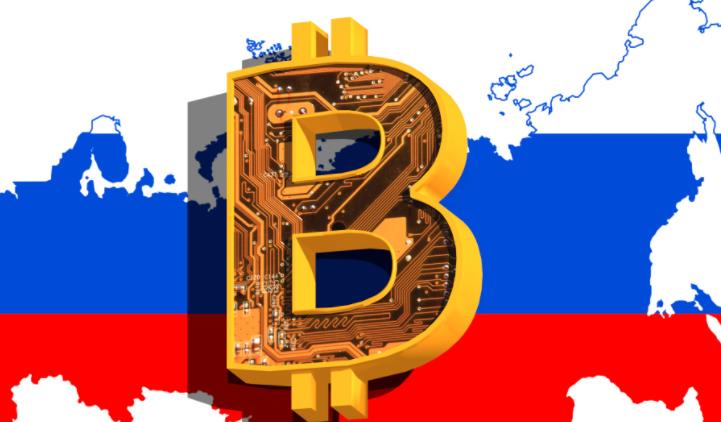The White House issued a statement saying that in response to Russian military action in Ukraine, the leaders of the United States and the European Commission, Germany, France, the United Kingdom, Italy and Canada have decided to exclude certain Russian banks from the Society for Worldwide Interbank Financial Telecommunication (SWIFT) payment system. In addition, “undermining their ability to operate globally”. In addition, the next step will be to impose restrictions on the Russian central bank to prevent it from deploying international reserves to weaken the impact of sanctions.
Founded in 1973, SWIFT, whose full name is “Association for Worldwide Interbank Financial Telecommunication”, is headquartered in Brussels, Belgium. Financial information transmission services.
Therefore, banning the use of SWIFT is a recognized “financial nuclear bomb”. As early as the escalating conflict between Russia and Ukraine, the United States and EU countries have begun to discuss the banning of the SWIFT system as one of the most severe financial sanctions against Russia.
In fact, as early as 2014, the United States and its European allies considered using the SWIFT system as a tool for sanctions against Russia, and former Russian Finance Minister Alexei Kudrin estimated at the time that cutting ties to the SWIFT system would allow Russia’s GDP falls by 5% in a year. Therefore, Russia retorted at the time that if it was expelled from the financial trading system, it would be regarded as a declaration of war against Russia. Once Russia is cut off from the SWIFT system, Russia’s international financial transactions, including oil and gas export earnings, which account for more than 40% of the country’s total revenue, will be cut off, with immediate and long-term effects on its economy.
A senior U.S. government official reportedly said that Russian banks kicked out of the SWIFT system would have to “use a telephone or fax machine” to make international money transfers.
“If these Russian banks that were ‘revoked’ SWIFT wanted to make or receive payments at banks outside Russia, it would now need to use a telephone or fax machine.”
Completely halt transactions with Russian banks kicked out of the SWIFT system.
What should Russia do when this “financial nuclear button” is really pressed?
According to reports, analysts pointed out that since 2014, in order to mitigate the economic blow that Western countries’ economic sanctions may bring, Russia has taken various measures, such as increasing gold and foreign exchange reserves, and state-owned banks reducing risk exposure to Western markets. mouth etc.
Russia’s reliance on foreign investors has declined in recent years. According to the Institute of International Finance (IIF), since 2014, Russia has been reducing its investment in U.S. Treasury bonds and dollars, while Russia’s foreign exchange reserves have been growing, of which the dollar’s share has gradually declined.
Yang Xiyu, a researcher at the China Institute of International Studies, said in an interview with the media on the 24th that once the United States and Europe shut down the SWIFT system to Russia, it will be more painful for itself. Russia occupies an important position in global energy exports, not to mention oil and natural gas. Russia is also the world’s second largest producer of primary aluminum. The surge in commodity prices will undoubtedly increase inflationary pressures in the United States and Europe.
In addition, Russia has adopted some strong macroeconomic defenses, including rich hard currency reserves of up to $635 billion, oil prices close to $100 a barrel, and a government debt-to-GDP ratio of less than 20%, a figure that much lower than that of Western countries. The low-debt status is said to help cushion the economy if Russia is hit with sanctions and ensure that government funding needs are met.
The analysis believes that the Western countries’ “kicking out” Russia from the SWIFT system is one of the most severe financial measures against it, which will cause a major blow to Russia’s foreign trade and international settlement.
At the same time, the report pointed out that the rapid development of bitcoin and other cryptocurrencies in recent years may provide Russia with a means of evading sanctions. “As with the traditional financial system, Russia can use cryptocurrencies to evade and respond to this sanctions,” said Caroline Malcolm, director of international policy at blockchain analysis firm Chainalysis.
In fact, Russia may have already “prepared for a rainy day” for this day. The question is, will cryptocurrencies be the “savior” for Russia to evade sanctions?
Russia is the third largest Bitcoin BTC -3.70% mining center in the world
Russia owns 12% of cryptocurrencies in the global crypto market.
In October 2021, the U.S. government warned that digital assets such as cryptocurrencies could broadly undermine the effectiveness of U.S. sanctions. “These technologies provide opportunities to hold and transfer funds outside the financial system,” the U.S. Treasury Department said in a report. “They also enable our adversaries to build new financial and payment systems to undermine the dollar’s global role.”
The analysis points out that US and EU sanctions rely heavily on banks to enforce, and if sanctioned businesses or individuals conduct transactions denominated in traditional currencies such as dollars or euros, banks are responsible for flagging and blocking those transactions. However, the explosion of digital currencies has enabled sanctioned entities to bypass the global banking system, allowing transactions to be completed without the sight of banking watchdogs.
“If the Russians decide to stop using any currency other than cryptocurrencies, they can effectively avoid almost all sanctions. I’m sure they are already doing that.”
Anti-money laundering compliance expert Ross S. Delston said.
The analysis believes that Russia can use a variety of cryptocurrency-related tools to evade sanctions, but the key is to find a way to trade without using U.S. dollars. In addition, the transparency of cryptocurrencies is built on the blockchain, and Russia could develop new tools to help hide transaction records.
According to the Cambridge Centre for Alternative Finance, Russia is the third-largest center for bitcoin mining after the United States and Kazakhstan. According to a report from the Government Analysis Center cited by local Russian media The Bell, Russia accounts for about 12 percent of the global crypto market. The average market cap of the global cryptocurrency market last year was $1.87 trillion, with Russia’s share of about $214 billion.
Some Eastern European countries, which have been frequently sanctioned in recent years, are among the regions with the highest “criminal activity-related cryptocurrency transactions,” according to Chainalysis’ research. Among them, the “dark web” used for illicit transactions saw a record $1.7 billion in cryptocurrencies in 2020, mostly bitcoin. The study also pointed out that the growth of the “darknet” market in Eastern Europe is almost entirely due to a Russian darknet platform, Hydra. In February, Chainalysis noted in a report that Hydra is “by far the largest darknet marketplace in the world, with its 2020 revenue accounting for more than 75 percent of global darknet marketplace revenue.”
In fact, Russia may already be preparing for this day.
Mike Parker, a former federal prosecutor who leads the anti-money laundering and sanctions practice at the Washington-based Ferrari law firm, said it would be naive to think that Russia did not anticipate this situation. “Russia has a lot of time to think about the specific consequences.” .
After the Crimea incident in 2014, seven large Russian banks were removed from the SWIFT system, resulting in varying degrees of impact on the Russian financial industry, and a large number of commercial activities came to a standstill. Since then, Russia has been promoting the process of “de-dollarization”.
In 2015, the Russian International Payment System issued the first batch of bank cards “Mirka” that meet the standards of Russia’s national payment system. Subsequently, Russia quickly established its own payment system and financial information exchange system, fundamentally laying the foundation for Russia’s de-dollarization of financial infrastructure.
In October 2020, Russia’s central bank floated the idea of a “digital ruble” in a report, saying it would reduce reliance on the United States and better circumvent sanctions, allowing Russian entities to trade outside the international banking system with anyone willing to trade. The country or other counterparty to trade this digital currency. And just as the Russian-Ukrainian crisis is “white-hot”, on February 15, the Central Bank of Russia announced the start of testing the digital ruble platform, which is its planned central bank digital currency (CBDC).
The analysis believes that Russia can use a variety of cryptocurrency-related tools to evade sanctions, but the key is to find a way to trade without using U.S. dollars. In addition, the transparency of cryptocurrencies is built on the blockchain, and Russia could develop new tools to help hide transaction records.
Can Cryptocurrency Be Russia’s “Savior”?
However, although “preparing for a rainy day” has already begun, it is still doubtful whether cryptocurrencies can become Russia’s “savior”.
The analysis on the 26th pointed out that cryptocurrencies such as Bitcoin can indeed help funds bypass the banking system and move more easily around the world, but this does not mean that it can help Russia avoid international sanctions. Because it is not realistic to use cryptocurrencies to transfer money across borders on a large scale. Although cryptocurrency transfers and transactions are very fast, every transaction record is stored on the blockchain, which can be read by anyone and cannot be forged or destroyed by anyone.
“The problem is that the movement of cryptocurrencies can be tracked in real time. There have been some technological breakthroughs in tracking crypto activity over the past few years, whether it’s simple transaction activity or mechanisms designed to obscure the origin of funds.”
Salman Banae, director of public policy for North America at Chainalysis, explained.
Malcolm also said that cryptocurrencies do not provide Russia with a “magic bullet” for evading sanctions because, like the traditional financial system, the cryptocurrency ecosystem can also take measures to identify transactions from “sanctioned entities.” Zachary Goldman, a partner at the Washington-based law firm Wickett Pingerde, argued that cryptocurrencies provide investigators with “unprecedented transparency” and, in some ways, are easier than investigations involving cash or other physical objects.
In September 2021, the U.S. Treasury Department placed a digital currency exchange on its sanctions list for the first time. The exchange, known as Suex OTC, is registered in the Czech Republic but has close ties to Russia, U.S. officials said. In November 2021, a second digital currency exchange, Chatex, was added to the U.S. Treasury Department’s sanctions list.
The US “killer” may stimulate the global economy to accelerate de-dollarization
While some professionals call sanctions kicking out of the SWIFT system a “financial nuclear weapon”, policy experts say that description is “grossly exaggerated”. They argue that kicking Russian banks out of the SWIFT system will not be as effective as direct sanctions on Russian banks.
They pointed out that one of the reasons why the United States and the European Union have been reluctant to use this “killer” against Russia is that once the Russian bank is kicked out, it may trigger an economic situation that American politicians and companies are unwilling to provoke. shock. There is a more complex and important factor, anxiety over the status of the dollar as the global reserve currency.
Analysts pointed out that in the long run, such sanctions could lead emerging markets to switch to blockchain-based systems, reducing global reliance on the US-centric international monetary system. In conclusion, sanctions targeting the SWIFT system are likely to stimulate an accelerated “de-dollarization” of the world economy.
Today, 11,000 financial institutions in more than 200 countries around the world use SWIFT for payments and securities transfers. The system, which is based in Belgium, partly conveys SWIFT’s tenet of “neutrality that needs to be strictly maintained”. But the fact that most of SWIFT’s transactions are settled in U.S. dollars has helped cement the U.S. dollar’s status as the global reserve currency, while giving the U.S. enormous leverage over the global economy, allowing the U.S. government to borrow at discounted rates, allowing The United States has a huge debt of more than $30 trillion and exerts influence on foreign countries through punitive monetary policy.
Previously, the US used its influence to kick Iran out of SWIFT twice. Ultimately, both sanctions met “expectations” to weaken Iran’s economy by restricting international trade. But at the same time, even America’s allies are starting to want to “alienate” SWIFT, knowing how dependent their banks are on SWIFT and wanting to move to less dollar-centric alternatives.
For example, in 2018, when explaining why Europe needed its own version of SWIFT, then German Foreign Minister Heiko Maas said, “We must increase Europe’s autonomy and sovereignty in trade, economic and financial policies.” The report pointed out that through the construction in recent years, there are already many systems that can replace SWIFT in the world. The EU and Russia have established their own systems, as well as emerging alternatives based on blockchain such as Ripple.
But as we all know, the hardest part is not building the new system, but getting member banks to join and embrace the new system. Therefore, the analysis of the report believes that the practice of kicking Russia out of SWIFT by the United States may trigger a chain reaction, allowing some countries to actually start to adopt alternative systems.






